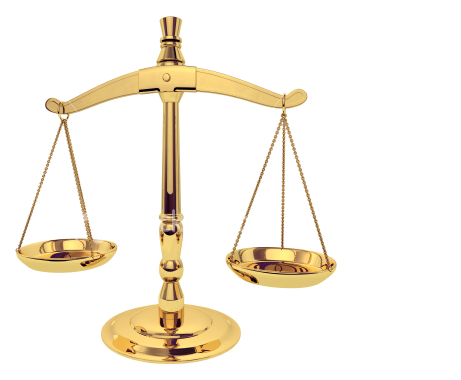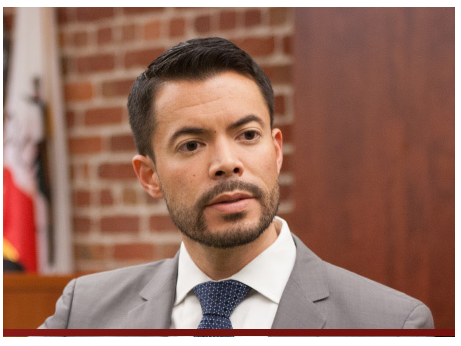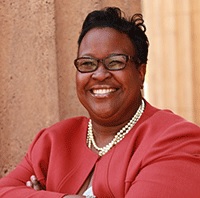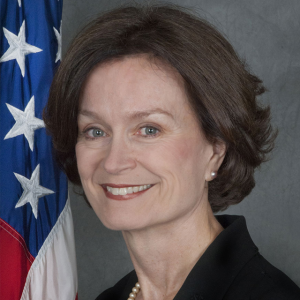By Tim Redmond
MAY 27, 2014 — I think it’s safe to say many of the people voting June 6th barely understand why there’s a race for Superior Court judge on the ballot, don’t know any of the three candidates (except for the direct mail pieces they’ve received) and aren’t sure what possible issues could be involved in filling out the ballot and sending one of these lawyers to the bench.
Part of that is the way California chooses members of the judicial branch. In theory, Superior Court judges are elected officials, and every six years, they have to face the voters. In practice, that hardly ever happens.
See, judges don’t tend to like elections. There are some good reasons for that, and some bad ones. The good reasons start with the notion of an independent judiciary – many say that if you make every judge run like a politician, then they have to raise money and court endorsements like politicians, and that could (and in some states, does) influence the outcome of critical decisions.
The bad reasons start with the notion that judges aren’t like the rest of us, and shouldn’t have to spend much time explaining what they do to ordinary people.
So for better and for worse, here’s what actually happens: When Superior Court judges decide to retire, they make sure to do it in the middle of their terms. That way, the governor can make an appointment to fill the vacant position. And the way the state Constitution works, candidates who want to run for judge have to file to challenge an existing incumbent (which doesn’t tend to make a lawyer popular with the local bench) – and if nobody files a challenge, then there’s no election. No judge even appears on the ballot.
Which is why judicial elections of the type we’re having June 3rd are fairly rare. And that much more important.
In this case, an incumbent is actually retiring on time, meaning a seat is open. So nobody in the black robes will get mad that there are three lawyers competing for the job, and the winner will be fully accepted into the closed-society cliques that define much of the SF Superior Court.
Help us save local journalism!
Every tax-deductible donation helps us grow to cover the issues that mean the most to our community. Become a 48 Hills Hero and support the only daily progressive news source in the Bay Area.
The other complicating factor came into play when the three candidates – all of them eminently qualified – came before the Democratic County Central Committee in March. The DCCC members wanted to know where the candidates stood on issues – say, abortion rights and marriage equality. Two of the three contenders, citing the Canons of Judicial Conduct, insisted that they couldn’t answer.
I’ve been through this over and over, for many years. There are limits to what a judge can say on issues that might come before the bench, but candidates who really want to talk about critical issues can find ways to do so.
But let’s forget that for a moment: There are a lot of things that everyone agrees judges CAN talk about, starting with the administration of the courts, jury duty, and media access to courtrooms.
So I went and talked to all three candidates, and all of them were kind enough to give me an hour of their busy time. And I told them that I would only ask questions that they were, by an possible standard, legally free to answer.
My subjects are fairly basic: Why aren’t the monthly judge’s meetings open to the public? Why can’t I bring a small, unobtrusive, silent recording device into a courtroom? Why not allow TV cameras to cover trials? What can we do to make it easier for low-income and working people to serve on juries?
I think I’m the only one who has asked about this stuff, because for the most part, the candidates were short on substantive answers.
Doesn’t mean they’d be bad judges. They all have exceptional backgrounds and experience, and I imagine that justice would be well served in any of their courtrooms.
I just wish they were more familiar with the interests of the news media in covering the courts.
Let’s start with Daniel Flores, since I saw him first. Flores was the most open of the bunch, and he started off the meeting in his Sutter Street law office by telling me that Canon 5 (b) of the code doesn’t require judges to abandon their personal beliefs. “There’s too much mystery about the role of a judge,” he said. “It’s important for people to know who they will be voting for.”
Flores was the only one who answered the questions on the DCCC and Harvey Milk Club forms. He said he was for choice, marriage equality, public power, ranked-choice voting, and rent control. None of those issues are specific enough to reflect judicial bias.
Flores was born to immigrant parents from El Salvador, served in the Marines, enrolled at Sacramento State and was planning on going into law enforcement when he saw a flier urging people of color to consider law school. He went to the meeting and wound up at McGeorge School of Law. After a stint with Ropers & Majewski, he started his own practice. He’s got the endorsements of the Bay Guardian, the Milk Club, and the DCCC, which makes him something of a front-runner in the progressive community.
So I asked him if he thought the election of the presiding judge ought to be a public process and the monthly judges meetings where court administration is discussed should be open to the public. “I don’t know what the mechanics are,” he said. “I would be open to the argument.”
The mechanics are pretty simple: the judges meet behind closed doors, they elect a presiding judge by secret paper ballot, nobody else knows who is running or who voted for whom, and all the decisions about court budgets and administration are done out of view of the people who elected the judges and pay their salaries.
Flores was a little stronger on cameras in the courtrooms: “I don’t see why not, if there’s no issue with safety,” he said. We’re talking safety of witnesses here; you testify against the leader of a criminal enterprise and your statement and picture wind up on the Ten O’Clock News and your life is in jeopardy. Nobody in the media wants that. But the vast majority of civil cases, and many criminal cases, involve no such issues.
He insisted that “the law says no recording devices,” and he’s the lawyer, not me, but I read this to say otherwise: “The judge may permit inconspicuous personal recording devices to be used by persons in a courtroom to make sound recordings as personal notes of the proceedings.”
In my experience, none of them ever do.
I always ask judicial candidates about jury duty. I’ve been in courtrooms many times; I’ve watched jury selection, and I’ve found that the people most likely to serve on juries are either (a) retired or (b) employed by a government agency or big corporation that pays for jury duty. Small business people, employees of small businesses, people with kids who work two jobs to pay the rent – they can’t serve on a jury, not the way things are set up now. It’s an important civic duty, but so is feeding your family and avoiding eviction, and the $6 a day the state pays for jury service doesn’t even cover parking.
“I agree with the problem,” Flores said. That, at least, is a start.
I met Kimberly Williams at a café across from the Hall of Justice, where she’s an assistant district attorney. She the daughter of two school teachers, a graduate of UCLA Law School who has worked in the securities industry and for the SEC. She’s done at least 20 misdemeanor trials and 15 felony cases, so she knows how a courtroom works.
For the past 19 years, she’s been an assistant DA in San Francisco – a job she says she wanted so badly that she called the incumbent, Arlo Smith, every single day for a month until he agreed to interview her. “He had two secretaries, and I’d get one and then the other, and I’m sure they were sick of me,” she said.
When she went before the DCCC, she was asked if she had an opinion on the death penalty, and she said the following:
“Yes, I have an opinion but I choose not to discuss it.”
Now: Even if a judge doesn’t want to come out against the death penalty, it’s not hard for anyone, even a career prosecutor, to acknowledge that the system as we have it today is not working.
But I couldn’t get anything more out of her on the issue.
She left every single issue answer on the questionnaires blank.
Williams has a prosecutor’s sense when it comes to cameras in the courtrooms – she told me she was worried about crime victims and witnesses. So am I. She was willing to say she’s open to cameras in cases where it’s appropriate, but she also said she was concerned that lawyers would grandstand and the administration of justice would suffer if we were able to watch on TV. (What, lawyers don’t grandstand now?)
We had a nice discussion about recording devices, and once I made it clear that reporters don’t want to make transcripts and sell them (in competition with the court reporters’ union), that we just want to get the quotes right, she seemed open to the concept.
She’s not at all ready, though, to vote to open up the judges meetings, and she told me (with, to be fair, some degree of accuracy) that with all the court budget problems, it’s going to be close to impossible to pay jurors and better.
Carol Kingsley didn’t have time to meet, but she was able to talk on the phone. She’s been through a lot – her husband was shot and killed in the 101 California rampage, and she’s spent years working to reduce gun violence. She’s spent a career in private practice, for the past 10 years as a mediator, and she says that since most court cases settle before trial, those skills would bring a lot to the bench.
She also has political experience, serving on the Ethics Commission and the Police Commission. She pushed for a children’s waiting room at the courthouse (a great idea).
When I asked about the election of the PJ, and the judges meeting, she said I had “raised a really good question.” But she wouldn’t commit to an answer. Same for cameras in the courtroom: “There is a strong public interest in what goes on, but I would want to hear from the lawyers and their parties.” As for recording devices, she said she thinks the courts are moving toward more openness, but “government change comes slowly, and issues have to be vetted and vetted.”
She also declined to answer the issue-specific questions posed by the DCCC and the Milk Club.
I will freely admit to a bias here: I’m in favor of more sunshine in all branches of the government, and I don’t see why the courts have to operate with such secrecy. I’m in favor of allowing one camera to record most court hearings; why not have sfgov.tv add a “courts” section on the web and stream the video there? I think it’s insane that I can’t record a trial with a small pocket recorder that disrupts nothing and just serves to make my reporting more accurate.
And I really wish someone would run for judge someday with sunshine in the courts as a key part of his or her agenda.
In the meantime, I have nothing against Flores, Williams, or Kingsley. I just fear that, after this election, we’ll see the same pattern I’ve seen for 30 years: The meetings will stay closed, cameras and recorders will still be banned … and then the next time a seat opens up, the candidates will all say the same thing.
Open government, in the courts? What a concept.








